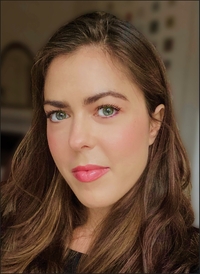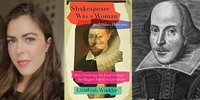Shakespeare Was a Woman and Other Heresies: How Doubting the Bard Became the Biggest Taboo in Literature
Elizabeth Winkler. Simon & Schuster, $29.99 (416p) ISBN 978-1-982171-26-1
This sharp debut by journalist Winkler expands on her 2019 Atlantic essay exploring the “messy, ugly dispute” over the authorship of works attributed to Shakespeare. Questioning how a relatively uneducated man from Stratford-upon-Avon could write such learned and feminist plays, Winkler suggests that perhaps “the author was not an uneducated man but an educated woman.” She discusses the numerous female candidates scholars have forwarded, including Mary Sidney, a translator who aspired to create “a body of English literature that could stand next to the great works in Greek, Latin, French, and Italian,” and Emilia Bassano, a poet who advocated for liberty from male oppression. She also surveys male authors believed by some to be the “real” Shakespeare, noting that playwright Christopher Marlowe is a favorite candidate because he died under mysterious circumstances “just weeks before ‘Shakespeare’ emerged.” Winkler doesn’t weigh in on the likeliness of the candidates, but instead uses the controversy to serve up thoughtful meditations on the role of the author, the objectivity of biography, and the limits of scholarly study (“Despite the most heroic efforts of feminist scholars, women of the past will always be, to some degree, ‘missing matter’ ”). Probing and smart, this is sure to stir up lively debate. (May)
Details
Reviewed on: 02/21/2023
Genre: Nonfiction
Compact Disc - 978-1-7971-5874-7
Downloadable Audio - 978-1-7971-5872-3
Paperback - 432 pages - 978-1-9821-7127-8



